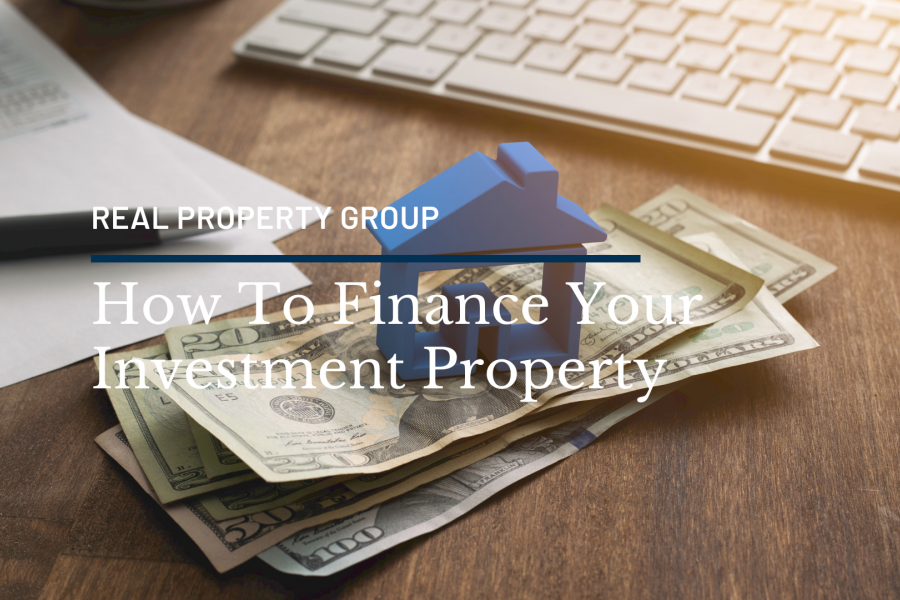
As more people learn about the advantages of investing in real estate, the motivation to own one is increasing. Compared to the volatility of stocks, real estate can be an excellent alternative.
If your goal is to earn another steady income stream, consider investing in a property. It can be a great portfolio diversification strategy rather than focusing on investing purely in stocks.
A real estate investment requires a high initial capital in contrast to stock market investments, so planning and researching is vital. Take time to check good deals and evaluate your investment property financing options.
There are several ways to finance investment properties. Each lender has its own specific requirements that borrowers must comply with. It’s essential to understand the different loan types so you can pick the right one for you. Otherwise, choosing the wrong one can greatly affect your investment goals.
Below are different kinds of loans and how they work:
Conventional Bank Loans
Most homeowners are acquainted with conventional financing which adheres to the guidelines outlining conventional bank loans. They differ from a Federal Housing Administration (FHA), U.S. Department of Veterans Affairs (VA), or U.S. Department of Agriculture (USA) loans, which are federal government-backed.
Another thing that differentiates conventional financing is the required down payment. Mostly, it’s 20% of the home’s purchase price. In contrast, with investment properties, you must have a 30% down payment on the real estate.
Credit scores also play a huge part since your personal credit score and credit history are assessed before lenders approve your investment property application. If you have an outstanding credit score, you’re far more likely to enjoy good mortgage rates.
Another thing lenders look at is your income and assets. If you can prove that you can afford the existing mortgage and can meet the monthly loan payments of the investment property, then your application gets approved easily. Make sure to come with a plan for how you will price your home to rent.
Hard Money Loans
Ideal for those who want to generate income right away, the hard money loan refers to a short-term loan. Some investors prefer to earn money from an investment in real estate right away rather than holding the property for a longer period, and converting it into a rental, or making property improvements.
You can opt to get a hard money loan for a property purchase and pay it off with a conventional loan, private money loan, or home equity loan. But, other options allow you to save more if you’re not a short-term real estate investor.
A prime benefit of accessing a hard money loan for house flipping and renovating, however, is skipping the stringent criteria compared to applying for conventional loans. Your credit score and income will still be taken into account by the lenders, but they’re more focused on how profitable the property would be.
Funding is also quicker under a hard money loan compared to conventional loans. You can have the funds readily after a few days rather than the typical weeks and months of processing.

However, its drawback is it can be costly, with interest rates rising up to 18%, which depends on the lender you choose and the term period of the payment. Usually, borrowers opt to shorten terms to less than a year.
Private Money Loans
When an individual lends out money to another, this is known as a private money loan. Typically, the source of private money loans is an investor’s family and friends. If your network doesn’t offer this option, you can seek out private money lenders through local real estate investment networking events.
Since private money loans can be between individuals, the terms and interest rates on loans can vary a lot. Normally, this type of loan requires signing a legal contract where lenders can foreclose a property if you stop making payments.
For new property investors, it’s wise to review your relationship with the lender before finalizing the agreement. It can negatively impact your relationship if you default on your payments.
Home Equity
Another way to finance an investment property is through home equity, a home equity loan, a home equity line of credit (HELOC), or cash-out refinance. You can usually borrow up to 80% of the home’s equity value so you can make a purchase, upgrade, and fix your investment property.
If you decide to go with this borrowing type, make sure you do not have a vacant unit for long.
Financing your real estate investment through home equity offers advantages and disadvantages, which depend on the loan type you decide on. For instance, if you opt for HELOC, you’re allowed to borrow against the equity and make monthly payments based on interest only. But with the variable rate, it can also mean paying more when there’s a change in the prime rates.

A cash-out refinance has fixed rates, but your current mortgage can become extended. If your loan term becomes longer, you can end up paying more interest on your main residence. In order to be successful, you need to consider the potential income you’ll be earning from your real estate investment.
InvestmentProperty Financing Requirements
Each lender and financing solution may require you to meet different criteria. Meanwhile, private lenders may just consider the borrower’s relationship with them. Hard money lenders may also check if a real estate market is hot and has a good estimated after-repair value (ARV).
Out of all loan financing types, the lenders of home equity loans, home equity lines of credit, and conventional loans often have the strictest list of requirements, deeply focused on your income and credit scores.
Bottom Line
Though investing in real estate by converting it into a rental property or pursuing house-flipping opportunities has its risks, the returns can be excellent. Financing can be accessible if you perform thorough research. You can evaluate each borrowing alternative and weigh the costs of each short-term or long-term loan which directly affect the returns from your property investment.
If you need help with understanding the ins and outs of financing your investment property, contact Real Property Group. Our team of experts can help you make the right decision!
